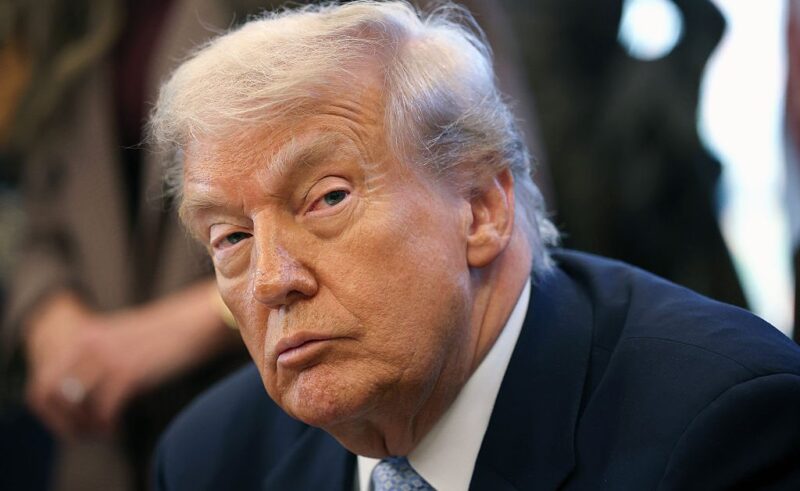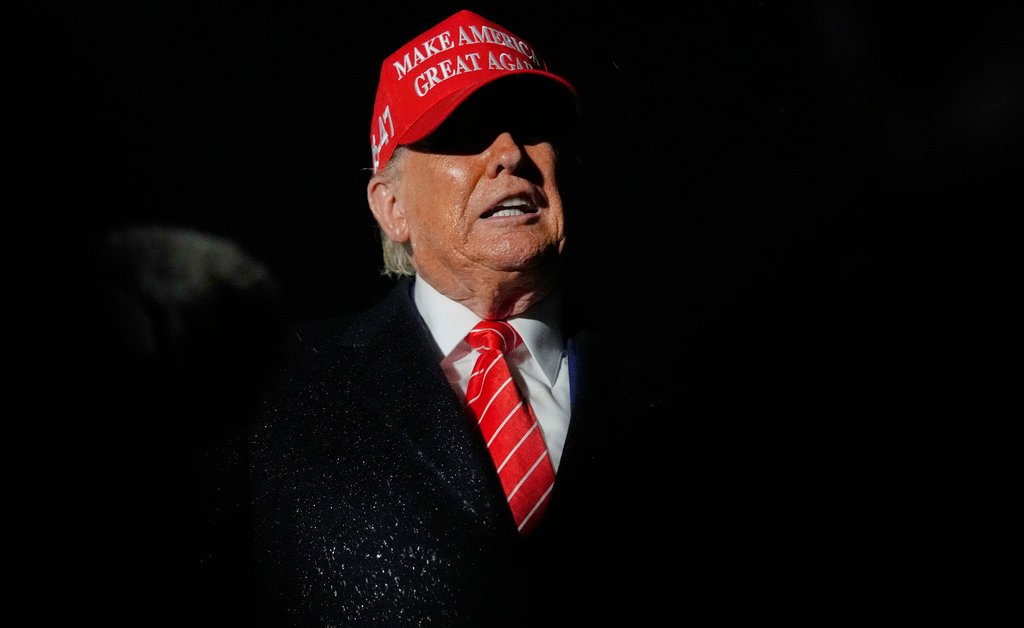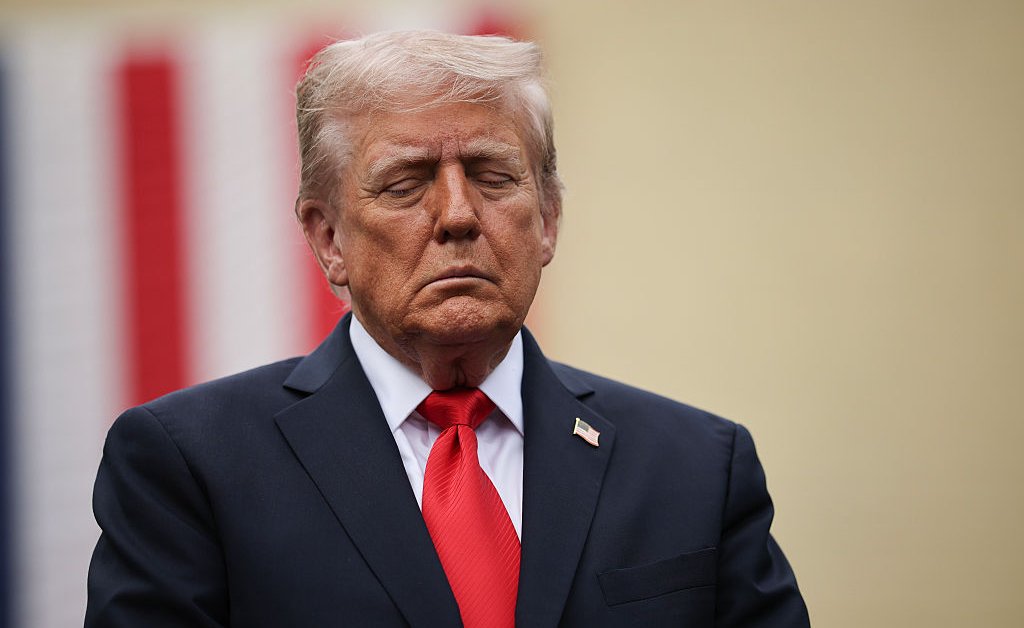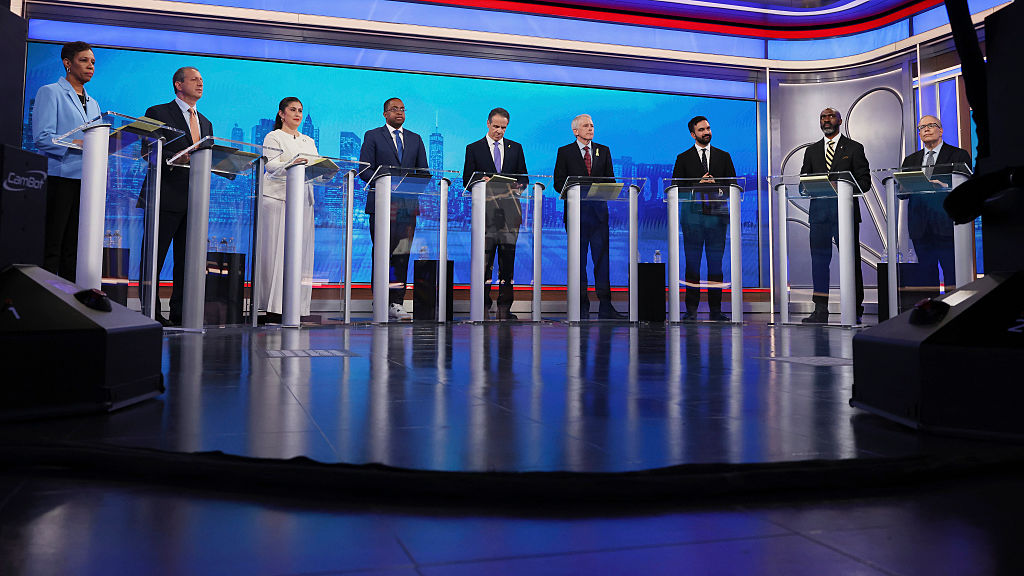This article is part of The D.C. Brief, TIME’s politics newsletter. Sign up here to get stories like this sent to your inbox.
Donald Trump read his situation with a clear eye and pivoted. He was hemorrhaging support among Republicans over his obstinance to releasing all the files the Department of Justice had swept up in its investigations of disgraced financier and convicted sex offender Jeffrey Epstein. His efforts to deflect or appear to be addressing the situation internally were being met with both outrage and ridicule.
So Trump faced a choice: shift his stance and join the mob he had spent a decade nurturing, or stay defiant and pledge to veto the disclosure bill if it ever got to his desk. This was not a fight he could win by bending the base his way.
So Trump appears to have blinked in response to pushback from his own base. It may be a sign that the Make America Great Again movement is outgrowing the man who built it into a dominant political force. For years, MAGA was whatever Trump said it was. His followers shifted their positions, sometimes repeatedly, on issues like trade, foreign conflicts, and who counted as a political enemy based on what Trump told them was the MAGA position.
But the latest turn in the Epstein saga may presage a bigger development than a mere political slapdown; it may indicate that the Make America Great Movement is evolving beyond fealty to an individual, morphing from a cult of personality into a more fully formed ideology that could actually outlast its founder.
This is not all that unusual. Like the Student Nonviolent Coordinating Committee in the 1960s, the MAGAVerse is not a monolith frozen in time. Similarly, the Tea Party, Black Lives Matter, and the Defund the Police movements are different today from when they started. Beliefs harden, tactics shift, loyalties are tested. Once that happens, top-down leadership loses its influence. Ideology is stronger than argument, and power proves portable.
The Epstein saga had boiled on the back burner for weeks until last Wednesday, when Democrats forced Trump’s hand with the release of three combustible emails in which Epstein alleged Trump had spent hours with one of the victims and “of course he knew about the girls.” Hours later, House Republicans responded with 20,000 other messages. Trump’s effort to swerve on Nov. 14 and appoint a special prosecutor to go after Epstein’s connections to former President Bill Clinton, his Treasury Secretary Larry Summers, and big banks gained zero traction.
So Trump took the only off-ramp available to him: on Sunday, he said he suddenly wanted Republicans to move forward with a plan already unstoppable. A day later in the Oval Office, he gave his clearest nod toward just being done with this: “Let anybody look at it, but don’t talk about it too much, because, honestly, I don’t want to take it away from us. It’s really a Democrat problem. The Democrats were Epstein’s friends, all of them, and it’s a hoax.”
There are reasons to think this unexpected turn is not over. When Trump first seriously started his climb in politics back in 2015, it seemed like his populist messaging and nationalistic bombast were vehicles for his brand. Somehow, Americans of most stripes seemed bewitched by this messaging that the elites were pulling a fast one over on The Forgotten Man. Those voters were willing to set aside Trump’s known reputation as a thrice-married billionaire who was once a big Epstein pal. They explained away his pressure campaign against Ukraine to find dirt on a political rival, dismissed his role in the violence that consumed the U.S. Capitol on Jan. 6, 2021, as overblown, and rationalized that returning Trump to power would allow him to finish what he started in his first term. Grace was limitless—until it was not.
The Epstein saga is different. For years, the MAGA base has subsisted on a diet of innuendo and intrigue about what exactly happened on Epstein’s island and inside the circle of pals who are said to have trafficked girls and young women. Trump repeatedly fed this impulse, to the point that the crowd now believes that everyone involved in that cabal must be punished, even if that means turning on Trump.
And, to be fair, Trump’s story on Epstein has evolved again and again. At first there was no real link between the two New York playboys. And then came the argument that Trump didn’t know anything but still found reason to kick Epstein out of the Palm Beach, Fla., club. And then came tales about fights over poached staffers and pilfered properties. Then came absolute denials that flew in the face of what was described as a lewd drawing and a birthday wish that “may every day be another wonderful secret.” And then the Democrats’ emails. And then the Republican ones. And then, and then, and then…
By now, Republicans are exhausted from protecting Trump. Over the summer, House Speaker Mike Johnson sent his chamber home rather than allow a vote to come to the floor on releasing the Epstein files. During the six-week shutdown, he refused to swear in a duly elected House member because she was set to be the crucial 218th signature on a petition that would force the House to take up the Epstein bill.
Even for some those in Congress long seen as MAGA diehards, this posture of protection was getting hard to maintain. Some rebel GOP lawmakers saw real value in knowing what the government had and who was dodging accountability. Others did not appreciate being lied to so openly, as if everything else coming out of Trump’s orbit was on the up-and-up. And yet others were willing to lose Trump if it meant staying true to their spine-strong commitment to justice.
Johnson’s efforts to spare his members a recorded vote went nowhere. The expectation is virtually every House member will vote today to compel the release of the Epstein files, sending the measure to the Senate where 13 Republicans would have to break ranks to get this to Trump. And the once-doomed-in-the-Senate bill could actually turn into a boulder rolling down a hill, unable to be stopped.
It’s a moment where Trump looks surprisingly ineffective—not only out-of-step with his base, but at a loss for how to shape it. It’s a sign that Trump may have finally succeeded in forming a movement that can outlast him—and he may be all the weaker for it.
Make sense of what matters in Washington. Sign up for the D.C. Brief newsletter.








